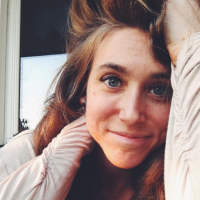
“Everything that irritates us about others can lead us to an understanding of ourselves.” ~ Carl Jung
~
Years ago, I was listening to someone complain about something in their life.
All I could think about in that moment was that they were totally stuck in “victim mode.”
They were complaining about how they had been wronged, and to be honest, I was annoyed and pretty sick of listening to them (particularly because in this case, they had done wrong; they just weren’t able to admit it or maybe even see it).
I was also, though, simultaneously, in that moment, aware that I also have this part in me—“the victim.” I have the part that feels like “life is hard.”
I knew that while I was irritated with this other person, I had this same aspect to myself.
Self-awareness is powerful, but it doesn’t always feel good.
When we start to become aware, if we’re truly open to cultivating awareness, if we want to see with clarity, we will start to notice things that make us feel uncomfortable. We’ll become acquainted with our less good parts, with the parts we judge or have wanted to deny. We’ll become aware of everything—including the less flattering, less appealing parts of ourselves. We’ll see the judgments, the pain, the disingenuous actions and words. We’ll feel the anger and resentment and fear.
Awareness doesn’t always feel good because it requires us to see truth and acknowledge it—and we all have parts of ourselves that we’re not exactly thrilled with. We all have our “darkness.”
True awareness requires us to be radically self-honest with ourselves, and sometimes that feels uncomfortable.
Most of the reasons for how we live our lives are unconscious to us. We don’t know why we do what we do. We’re blind to it, unaware.
But without awareness, without self-awareness, we can’t really live intentionally or consciously. We’ll always be stuck in a loop of unconsciousness—thinking, acting, moving in habitual ways that come from spaces we can’t see and don’t understand.
We’ll stay stuck in limiting beliefs and patterns that don’t feel good, that don’t serve us, and that don’t allow us to live the lives we truly want to live.
And we won’t be able to learn the deeper reasons for why we are how we are; we won’t have a chance to get to the root, and we won’t have the chance to go beyond it.
We’ll also be fragmented, disowning or disregarding parts of us while favoring or prioritizing others. But when we do this, we don’t actually banish the parts we don’t like—they will just surface in a different way, unconsciously. We’re meant to come back to ourselves, fully own all of the parts of ourselves—and our neglected parts will keep knocking at the door of our consciousness until we’re ready to acknowledge them, look at them, and choose to learn from them.
Our ego, this part of us, has identified with certain personality characteristics—we want to see ourselves a certain way. Maybe we want to see ourselves as kind or optimistic or hardworking. But just because we want to see ourselves in a certain way doesn’t mean that there aren’t other parts to us—complimentary parts, contrasting parts, that don’t align with that vision. And unless we also own those parts, we won’t be able to live wholly, consciously, or with true self-authority. We’ll still be pulled unconsciously by the shadow parts we deny.
We can learn so much about ourselves by observing ourselves, and honestly, it’s the only way we can be truly intentional in our lives.
I know there’s still stuff I can’t see, that I don’t know, but I also know I won’t know until I know it. I know that there is still so much that is unconscious to me, but I’m happy with the awareness I feel blooming within me, that’s unraveling within and before me. This is a process, a journey.
If we keep an open heart, we can learn so much in each moment. If we can watch our thoughts, observe what’s happening within us, we can discover parts of ourselves we didn’t know existed.
We can make peace with the parts that ache, that are in pain, and we can learn how to more intentionally work with the parts that aren’t working for us. For example, because I know I have a part of me that plays into the “victim mentality,” I’m able to recognize it when it comes. I know what it looks like and what it feels like, so it can’t just run away with me. I’ve also learned how to work with this part, how to reframe my thoughts and get myself out of this state, and I’ve learned at least some of why I may feel this way, the deeper root causes, and this has allowed me to hold compassion for this part of myself.
This only happened because I was willing to acknowledge and own this part of me.
Cultivating self-awareness requires being able to sit with the discomfort—with the parts that ache, the parts that are in pain. It means allowing all of our thoughts and feelings and emotions that arise to move through us. It means watching everything, being aware of everything, being curious about everything.
It requires self-honesty and the ability to sit with, move with, and feel discomfort.
It’s only with awareness that we can decide consciously, with intention, how we want to move in our lives.
Self-awareness requires self-honesty, and it doesn’t always feel comfortable.
But it’s only through seeing and owning everything, even our less wonderful parts, that we have the ability to choose what to do with them, that we have the ability to consciously move through them and beyond them.
~


 Share on bsky
Share on bsky




Read 7 comments and reply